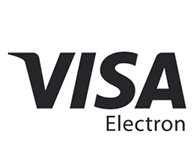Supplements and Drugs: the differences
Whenever we talk about food supplements the question arises: what are the differences compared to a medicine?
Well, the answer is very complex, as we are talking about two extremely heterogeneous and vast categories of products. Therefore, in some cases the differences can be many while in other cases they may be minimal, but let's try to go into more detail on the matter.
The main existing difference is the regulatory framework in which the products are placed which, as far as the drug is concerned, involves an extremely long process of development and production of studies aimed at evaluating its safety and efficacy, while, as regards the drug, the placing on the market of a food supplement involves a leaner and faster procedure. However, the fact that the substances allowed in food supplements are such is hardly ever considered as common use for decades in a certain geographical area guarantees their safety.
It is indisputable that the efficacy studies of a certain pharmaceutical substance are necessarily more complete and that the two worlds, that of supplements and that of drugs, are very distant. But it is also true that even in the nutraceutical market there are more and more scientific studies of efficacy that are proliferating, especially in recent years. A large portion of products belonging to the world of supplements are more related to food than to drugs; in fact, these substances, usually macronutrients, are taken in case of deficiencies due to unregulated diets or slight metabolic disturbances.
However, the set of substances pertaining to the set of micronutrients can sometimes be similar or even coincide with pharmaceutical substances. This is the case, for example, of Vitamin D3, folic acid, reduced glutathione and many other active ingredients: in these cases, the same molecule can belong to both the drug class and that of supplements. What determines the category are, for example, the dosage or pharmaceutical form and, therefore, the method of use. It is evident that, in this case, finding differences in terms of absolute effectiveness does not make any sense.
So, returning to the initial question, it is clear that there is no single answer but, depending on the case, the two worlds can be extremely close or far away. With the help of professionals in the sector, it is possible to better understand this not a little intricate but very fascinating theme.
Dr. Enrico Casari Bariani








